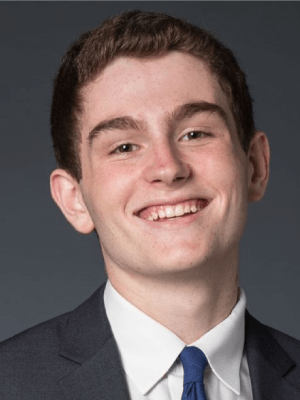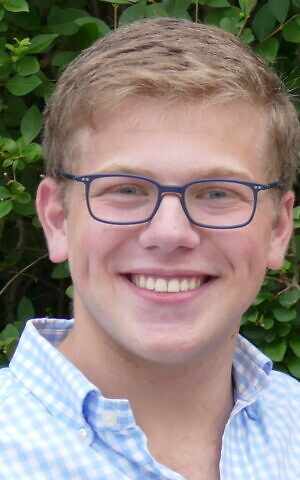Israel Summit Targets Non-Jews on Campus
The goal of the virtual summit is to broaden Israel’s appeal to those who don’t have a vested interest in the country.
It’s one thing to advocate on Israel’s behalf to Jewish university students. It’s quite another to share Israel’s story with the non-Jewish students.
That larger audience is the target of next month’s virtual Israel Summit, an international conference organized by university students around the world. Harvard sophomore Aidan Golub, the executive director of The Israel Summit, said his goal is to “change the conversation about Israel on campus. We have Jewish organizations that run Israel programming targeted to Jews, but for the other 97 percent of the students who don’t have the exposure, Israel is merely synonymous with the desert, apartheid weeks and violence.”
Golub expects more than 100,000 viewers to participate in the virtual summit 8 p.m. EST Feb. 7-11. Organized in conjunction with 125 universities in 20 countries, the summit has the support of more than 60 institutions, including the World Jewish Congress, American Israel Public Affairs Committee, Hillel International, Chabad International, the World Union of Jewish Students, Christians United for Israel, AJC, StandWithUs, the Simon Wiesenthal Center and JCC Global.

Keynote speakers will include Sen. Mitt Romney (R-Utah), Sen. Cory Booker (D-N.J.), former U.K. Prime Minister Tony Blair, former Canadian Prime Minister Stephen Harper, TV star Lior Raz, Moderna Chief Medical Officer Tal Zaks, Waze CEO Noam Bardin, Google Israel CEO Barak Regev, KIND founder Daniel Lubetzky and the next Israeli Ambassador to the United States, Gilad Erdan, among others.
After the speakers, there will be a virtual summit that will connect students with study and internship possibilities in Israel.
Emory University sophomore Thomas Getman is enthusiastically spreading the word about the summit to Emory students not typically interested in Israel. “I am forming a network of support particularly among non-Jewish groups,” Getman told the AJT. He’s reaching out to what he calls the 80 percent who don’t have a vested interest in Israel.
Because of the lineup of speakers, Getman has contacted Emory’s student heads of the technology club and the medical society. “The speakers are the draw. We’re going after those who don’t care about Israel,” he said. “When the pre-med students hear that the chief medical officer of Moderna will be speaking, they light up the same way I light up when talking about Israel.”
Getman grew up in New York City in a family that belonged to a Reform synagogue. He attended Jewish day school. Israel was a frequent topic of conversation. Then he became a student at a boarding school in Connecticut without other Jews, which was a wake-up call to him. He decided to focus on Israel advocacy when he attended college. At Emory, he is vice president of the Israel political club.
Getman said the non-Jewish students he’s seeking “need incentives” to learn and care about Israel. He said it’s important for their “first interaction with Israel” to be positive. As of mid-January, the double-major student of philosophy and business has signed up more than 100 Emory students.

According to Golub, Getman is one of many campus managers active in recruiting for The Israel Summit. He is engaged in conversations with students at the University of Georgia and Georgia State University to spread the word about the summit.
“These kids will be the future leaders” of the country, said Golub, so it’s important for them to learn about Israel.
But Golub is not just focused on American university students. He noted that 50 students taking a course in the Hebrew department of an Azerbaijan university have signed up as well as the non-Jewish students in an inner-city high school where Hebrew is taught. “They will be writing up in Hebrew what they learned” from the summit, he said. “There will be dozens other students and classes that we won’t know about,” he added. “We don’t know what the ripple effect will be.”
- Jan Jaben-Eilon
- Education
- Community
- Israel
- Mitt Romney
- Aidan Golub
- Israel Summit
- World Jewish Congress
- American Israel Public Affairs Committee
- Hillel International
- Chabad International
- the World Union of Jewish Students
- Christians United for Israel
- StandWithUs
- the Simon Wiesenthal Center
- JCC Global
- Cory Booker
- Thomas Getman
- Emory University




comments